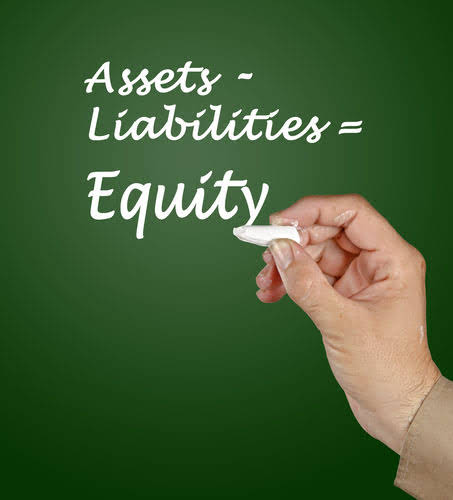
This means they’ve earned the Certified Public Accountant designation and obtained licensure in their state. In general, the larger or more complex your business is, the greater the need for both an expert bookkeeper and a certified accountant. Many smaller businesses begin with bookkeeping services, and then add other accounting services as they grow.
- Whether you decide to do your own accounting and bookkeeping or to outsource it, using an accounting software such as QuickBooks will make things easier on you and whomever you hire.
- Your bookkeeper will maintain your working ledger in a way that is accurate and easy to understand, and can alert you to red flags as they arise.
- The two careers are similar, and accountants and bookkeepers often work side by side.
- They typically present insightful financial data to stakeholders and other decision-makers, who use it to steer the business in the right direction.
- Whichever option you choose, investing—whether it be time or money—into your business financials will only help your business grow.
- Bookkeeping is a part of accounting whereas accounting itself is a wider concept.
Bookkeeping is a great starting point if you are interested in the field but not fully committed and want to test the waters. You may also be an ideal bookkeeping candidate if you want a good job with a respectable wage and decent security but may not be looking for a long-term career. Bookkeeping offers much lower barriers to entry, and the competition you face in the job search is less fierce. As a business leader, you should have a good idea of which professionals best suit the needs of your company. As such, it’s important to know whether you need a bookkeeper or an accountant to keep track of your affairs. Accountants and bookkeepers work with numbers and financial data all day long.
Are bookkeepers accountants?
To maintain the credential, bookkeepers are required to engage in continuing education. As you’re planning your budget for the following year, your accountant will be the one who can provide analysis and suggestions to ensure your company is in the best fiscal shape to succeed. And, of course, all companies need to file taxes, which can become extremely complicated as your business grows. A trusted accountant can help guide you through that process and help handle any audits that may arise. Your accountant will also use information from the ledger to prepare your tax documents, so it is crucial the two roles work together for accurate IRS reporting. Think of your bookkeeper as the one building the foundation of your businesses finances, and your accountant as the architect who designs a house around it, inspecting the foundation.
All of their duties are performed within, and on behalf of, that employer. In some cases, a public accounting firm will be called upon to review, or audit, a private accountant’s work. One of the most common questions we hear from clients is, “What’s the difference between bookkeeping and accounting? They can implement accounting software and modify accounting processes that have long-term effects.
Auditing and Accountancy
Julia is a writer in New York and started covering tech and business during the pandemic. If you are proficient and comfortable using mathematics and computing figures, plus punctual, organized, and detail-oriented, it is not hard to learn how to be a bookkeeper. Of course, a background in accounting practices will help you ride out a learning curve as a new bookkeeper. Bookkeeping professionals can do a regular expense review and follow up on overdue payments. They make sure everything is compliant with accounting regulations and standards. You may have already discovered how broad and multi-faceted this occupation truly is, and that may leave you wondering what aspect of accounting would make the best fit for you.

Bookkeepers record financial transactions, post debits and credits, create invoices, manage payroll and maintain and balance the books. Forensic accounting combines auditing, accounting, and investigative skills to evaluate a businesses finances and determine any instances of fraud. Having accurate records and an up-to-date awareness of how your business flows on a short-term basis is a key component for deciding where to go next, and that’s where a bookkeeper comes in. While a bookkeeper will remain an important partner for strengthening that foundation of a company, when it comes to creating pathways for the future, you should look to an accountant. A bookkeeper is the person on your team who handles your business’s books the most.
Accountant credentials
Kelly is an SMB Editor specializing in starting and marketing new ventures. Before joining the team, she was a Content Producer at Fit Small Business where she served as an editor and strategist covering small business marketing content. She is a former Google Tech Entrepreneur and she holds an MSc in International Marketing from Edinburgh Napier University. The bookkeeper should be able to answer all questions about daily finances and the status of payments. An enrolled agent (EA) is a tax professional authorized by the United States government. Their job is to advocate and assist taxpayers when they have issues with the Internal Revenue Service.
- Bookkeepers handle the day-to-day tasks of recording financial transactions while accountants provide insight and analysis of that data and generate accounting reports.
- Fully Accountable is an outsourced accounting firm specializing in eCommerce and digital businesses.
- In this day and age, the providers you contract with don’t need to be in the same city, state or even time zone as you.
- For example, KPMG offers employees up to 25 days of paid vacation time, telecommuting opportunities, and a robust health insurance package.
- It also includes more advanced tasks such as the preparation of yearly statements, required quarterly reporting and tax materials.
Accounting takes that information and expands on it through analyzing and interpreting the data. Accountants are more expensive, but they are qualified to do more things for your business, such as prepare financial statements and file taxes. They must also keep their certifications current, which means they will be up to date on the latest federal, state and local tax laws that can affect your accounting vs bookkeeping business. Accountants must also go further to take a higher-level strategic view of the business to offer financial planning advice. They must be skilled at accurately interpreting financial reports and understanding what they mean for the financial health of the business in question. In this guide, we’ll explain what bookkeeping is, what accounting is and the key differences between them.
A bookkeeper is not an accountant, nor should they be considered an accountant. There is also ample opportunity for on-the-job training, apprenticeships, and post-secondary coursework that can help someone become a skilled bookkeeper. Maintaining a general ledger is one of the main components of bookkeeping. The general ledger is a basic document where a bookkeeper records the amounts from sale and expense receipts. A ledger can be created with specialized software, a computer spreadsheet, or simply a lined sheet of paper. The purpose of accounting is to provide a clear view of financial statements to its users, which includes investors, creditors, employees, and government.
When choosing where you want to take your career, you’ll need to know the difference between bookkeeping and accounting to find out which is right for you. In this day and age, the providers you contract with don’t need to be in the same city, state or even time zone as you. Remote work has expanded across nearly every field, including bookkeeping. If you find someone who is a good fit for your business needs, it doesn’t matter if they are in California while you work from New York. You’ll want to create a contract that outlines details, such as deadlines, rates and expectations so that everyone is on the same page. As the function of accounting is typically more diverse than bookkeeping, hiring an accountant may allow you some flexibility.